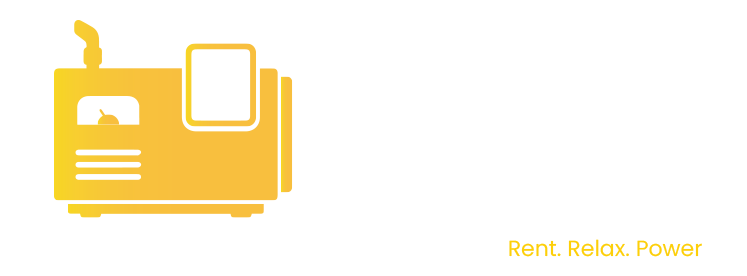When a storm knocks out your electricity or a heatwave strains the grid, the last thing you want is to be left in the dark. Generators for emergencies are more than just a convenience—they’re a lifeline for safety, comfort, and peace of mind. Whether you’re facing unpredictable weather, aging infrastructure, or unexpected outages, having a reliable backup power source ensures your family stays safe, your food stays fresh, and your life stays on track.
In this guide, we’ll walk you through everything you need to know about choosing, maintaining, and maximizing generators for emergencies. From understanding different types to avoiding common mistakes, you’ll learn how to stay prepared for whatever comes your way.
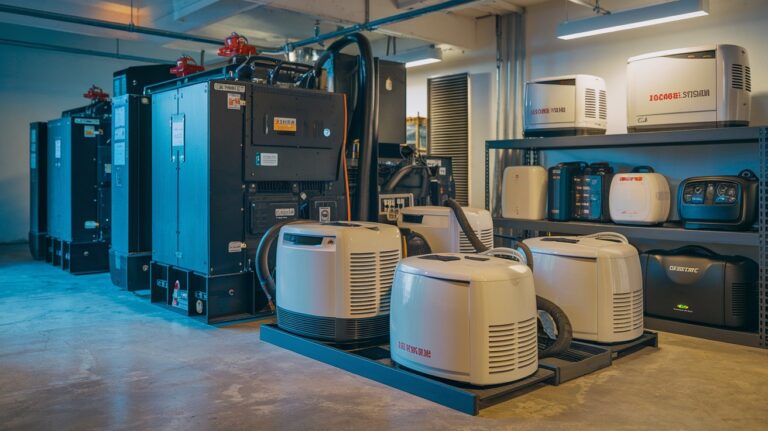
Why Generators for Emergencies Are Non-Negotiable
Imagine this: It’s midnight during a winter storm, temperatures are plummeting, and your furnace shuts off. Or maybe a hurricane floods your neighborhood, leaving you without power for days. Scenarios like these aren’t just inconvenient—they’re dangerous. Generators for emergencies bridge the gap between vulnerability and resilience, providing critical power to:
Keep lifesaving medical devices (like oxygen machines) running.
Prevent spoiled food and medication.
Maintain communication via charged phones and Wi-Fi.
Power heating or cooling systems during extreme weather.
In 2021, Winter Storm Uri left millions in Texas without power for days, highlighting how unprepared many households were. Don’t wait for disaster to strike—proactive planning with a generator can save lives.
Types of Generators for Emergencies: Which One Fits Your Needs?
Not all generators are created equal. Your choice depends on your budget, power needs, and how “hands-on” you want to be during an outage. Let’s break down the two most common options:
1. Portable Generators: Affordable and Flexible
Portable generators are the go-to for many households because they’re cost-effective and versatile. These gas- or propane-powered units can keep essentials like refrigerators, lights, and small appliances running.
Pros:
Lower upfront cost (typically 500–500–2,000).
Easy to store and transport.
Ideal for short-term outages (12–48 hours).
Cons:
Require manual setup and refueling every 8–12 hours.
Not weatherproof (must be kept outdoors and dry).
Limited capacity (usually 3,000–8,500 watts).
Best For: Renters, small homes, or those needing temporary backup.
2. Standby Generators: Automatic and Powerful
Standby generators are permanently installed outside your home and kick on automatically within seconds of an outage. They’re connected to your home’s electrical system and can power everything from HVAC systems to well pumps.
Pros:
Hands-free operation (no setup required).
Higher capacity (10,000–20,000+ watts).
Runs on propane or natural gas for longer runtime.
Cons:
Higher cost (3,000–3,000–15,000 installed).
Requires professional installation.
Needs annual maintenance.
Best For: Home owners in areas with frequent/long outages or medical needs.
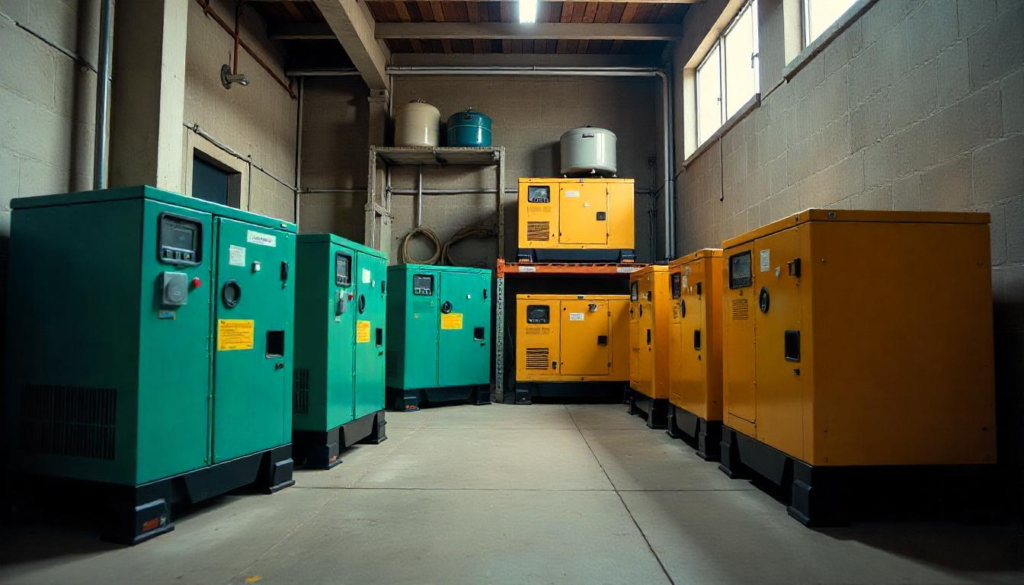
How to Choose the Right Generator for Emergencies
Picking the perfect generator isn’t just about price—it’s about matching your needs to the right features. Follow these steps to avoid overspending or underspending:
Step 1: Calculate Your Power Needs
List the appliances and devices you’ll need during an outage. Focus on essentials first:
Refrigerator: 600–800 watts
Sump pump: 800–1,500 watts
Space heater: 1,500 watts
Window AC unit: 1,000–1,500 watts
Add up the starting watts (higher surge when devices turn on) and running watts (steady power use). For example:
Refrigerator (800W running / 1,200W starting)
5 LED lights (100W total)
Total running watts: 900W
Total starting watts: 1,200W
Choose a generator that exceeds your highest starting wattage.
Step 2: Fuel Type Matters
Gasoline: Readily available but flammable; stores for 3–6 months.
Propane: Longer shelf life (indefinite), cleaner burn, but requires tanks.
Natural Gas: Unlimited supply if connected to a line, but only for standby units.
Step 3: Prioritize Safety Features
Look for:
Automatic shutoff for low oil or overload.
CO detection to prevent poisoning (portables must be 20+ feet from windows).
Weather-resistant casing for outdoor use.
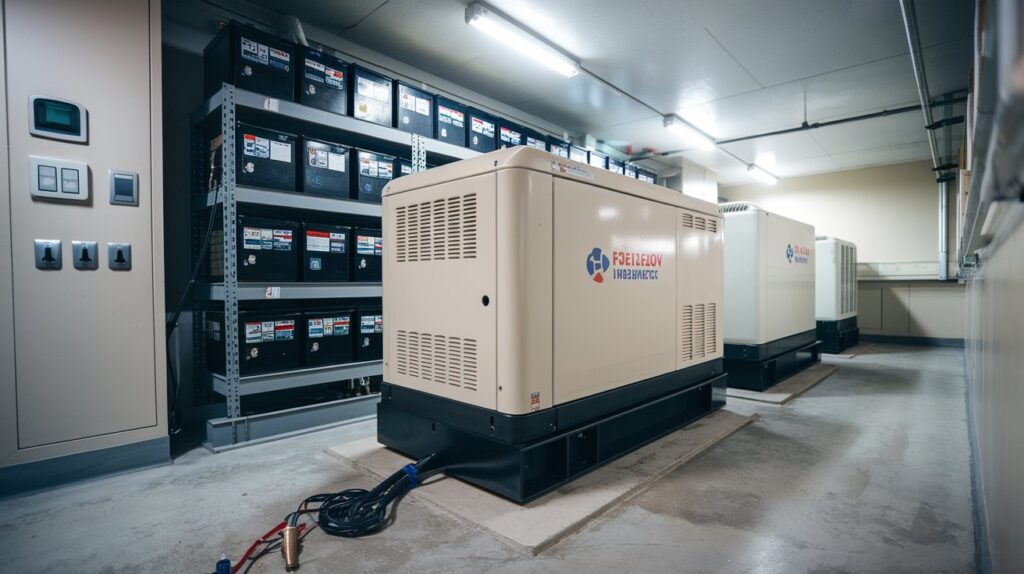
Common Mistakes to Avoid with Generators for Emergencies
Even seasoned preppers make mistakes. Here’s how to stay safe and efficient:
Underestimating Runtime: Portable generators need refueling every 8–12 hours. Stockpile fuel safely.
Ignoring Maintenance: Test your generator monthly and change oil annually.
Overloading Circuits: Plugging in too many devices can damage the generator and appliances.
Poor Placement: Never run a portable generator indoors—carbon monoxide kills silently.
Maintaining Your Generator: A Quick Checklist
A well-maintained generator lasts longer and performs better. Stick to this routine:
-
Monthly: Start it up and let it run for 15 minutes.
-
Post-Outage: Check for damage and refuel.
-
Annual: Replace oil, air filter, and spark plugs.
Why Choose Rental Genset for Generators for Emergencies?
At Rental Genset, we understand that emergencies don’t wait for convenience. That’s why we’ve spent 35 years providing reliable, user-friendly generators for emergencies tailored to every home and budget. Here’s what sets us apart:
24/7 Support: Our team guides you from selection to installation.
Fuel Efficiency: Models with smart throttling to save fuel during low demand.
Warranty Assurance: Industry-leading coverage for peace of mind.
Don’t gamble with your safety—Rental Genset ensures you’re always prepared.
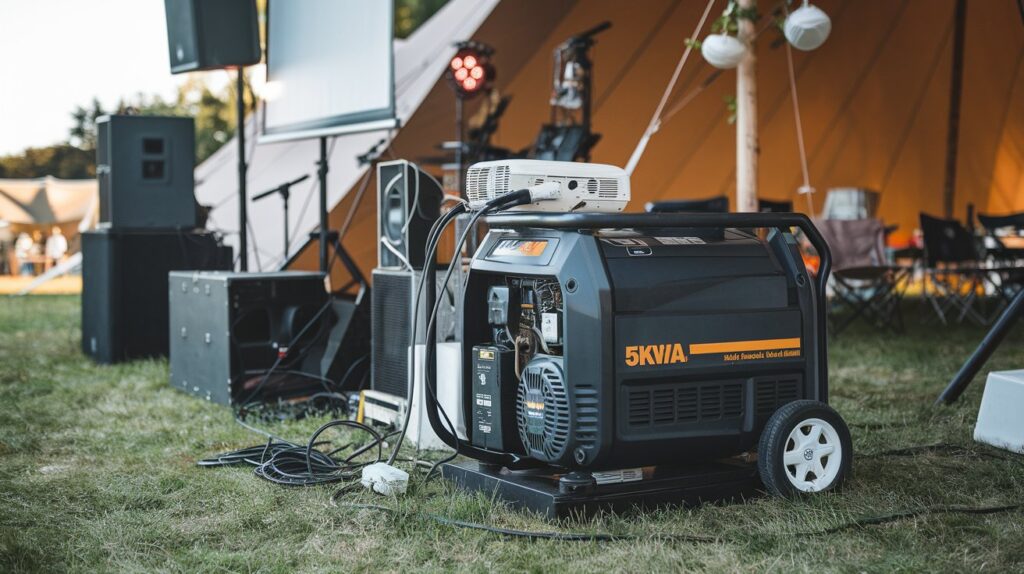
Final Thoughts: Stay Powered, Stay Safe
Generators for emergencies aren’t a luxury—they’re a necessity in today’s unpredictable world. By understanding your needs, avoiding common pitfalls, and partnering with a trusted provider like Rental Genset, you’ll turn vulnerability into confidence.
Ready to take the next step? Explore our range of generators or chat with our experts today. Because when the lights go out, your preparedness shouldn’t.
